Discovery of 'pristine' coral reef near Tahiti could help save dying coral reefs around the world, scientist says
Up to 14% of the coral reefs in the world were killed between 2009 and 2018.
The marine science community is buzzing with excitement after the discovery of a rare stretch of coral reef in pristine condition off the coast of Tahiti and the answers it could hold to save other dying species around the world.
The 2-mile stretch of reef was recently spotted in deep waters in the South Pacific in French Polynesia, according to the United Nations Educational, Scientific and Cultural Organization, which supported the dive mission. It is one of the largest coral reefs in the world, with reefs shaped like "giant roses," according to the Paris-based agency.
The reef system is "remarkable" and "highly unusual" due to the deep depths in which it was found and the clean and seemingly untouched ecosystem in which the reefs are thriving, according to UNESCO.
Coral reefs around the world have been affected by climate change and other environmental conditions, which has led to widespread bleaching -- when corals turn white as a result of water temperature rising -- and ocean acidification, which occurs when water's pH levels are lowered as a result of carbon dioxide in the atmosphere.
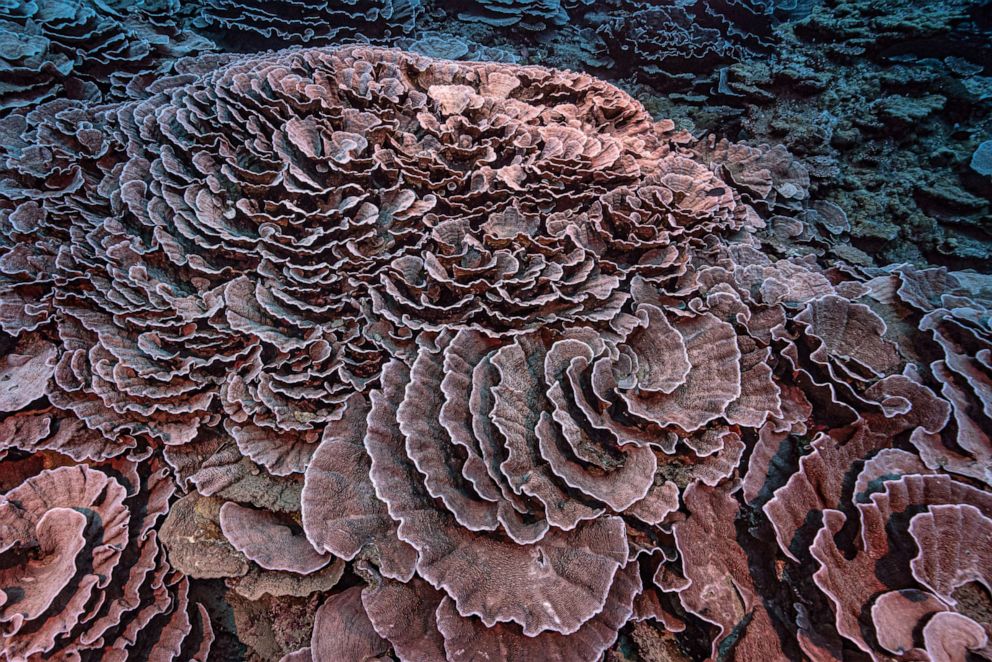
Scientists will use the newly discovered reef as a model to help conserve other reefs around the world in shallower waters, Renee Carlton, a marine ecologist with the Living Oceans Foundation, a nonprofit research organization, told ABC News. Most of the current research focuses on shallow reefs, she added.
"There's so many questions that we can ask and can be answered with this type of discovery that we may not have been able to before," Carlton said. "Especially with the rate of change that we're seeing with coral reefs around the world, having something this beautiful and pristine be discovered is a really exciting and encouraging discovery."
When Carlton participated in a global research expedition to map coral reefs, the systems in some of the most remote part of the world still had evidence of deterioration. The new reefs remain unscathed after a mass bleaching event in 2019, making its pristine condition that much more remarkable.
Researchers will study the biodiversity surrounding the coral reefs, since they provide habitat and food to so many other species, Carlton said. Researchers will then attempt to replicate the conditions to other reefs in more shallow conditions to see if their chances of survival will improve, Carlton said.
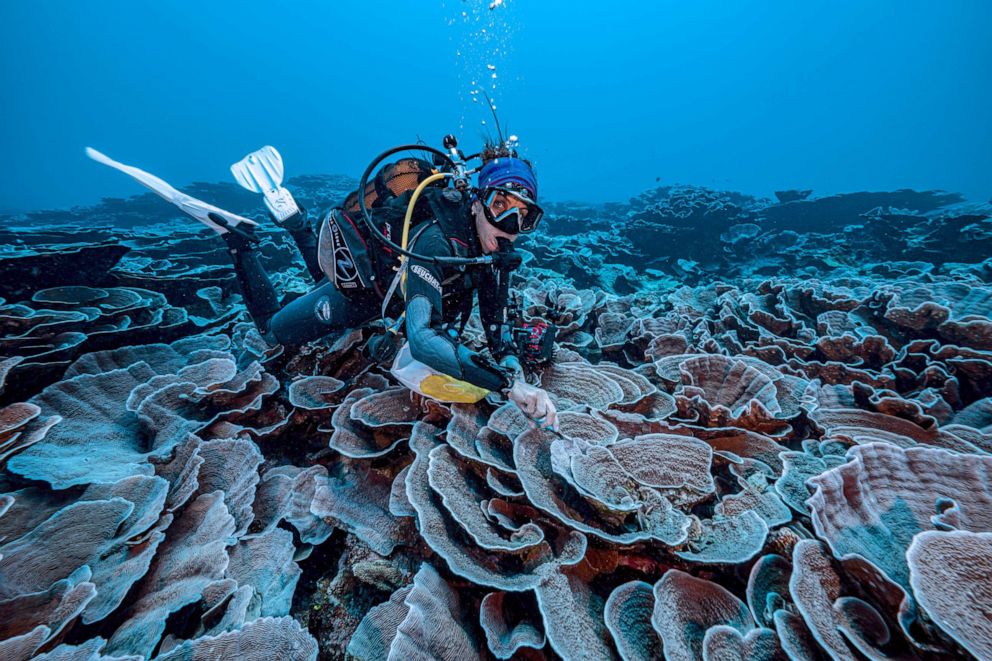
The organisms that live on reefs can be important for medicinal research and reefs can also provide protection from coastal erosion and tsunamis, according to UNESCO.
"There's an opportunity for us to look and see, why are these corals able to survive so much better than, say, the shallower coral reef species that we're seeing?" she said. "And what can we learn from them to then try and help conserve the coral reefs that are already existing?"
Only 20% of the sea floor has been mapped, which makes more discoveries like this one in the future highly likely, said UNESCO Director-General Audrey Azoulay.
"To date, we know the surface of the moon better than the deep ocean," Azoulay said in a statement. "...This remarkable discovery in Tahiti demonstrates the incredible work of scientists who, with the support of UNESCO, further the extent of our knowledge about what lies beneath."
Laetitia Hédouin, a researcher at the French National Center for Scientific Research in Moorea, French Polynesia, first saw the corals months earlier during a recreational dive with a local diving club, she told the Associated Press. She immediately knew there was "something special about that reef" and that she needed to go back to study it.
Hédouin was especially struck that the corals looked so healthy and that they were affected by the 2019 bleaching event, she said.
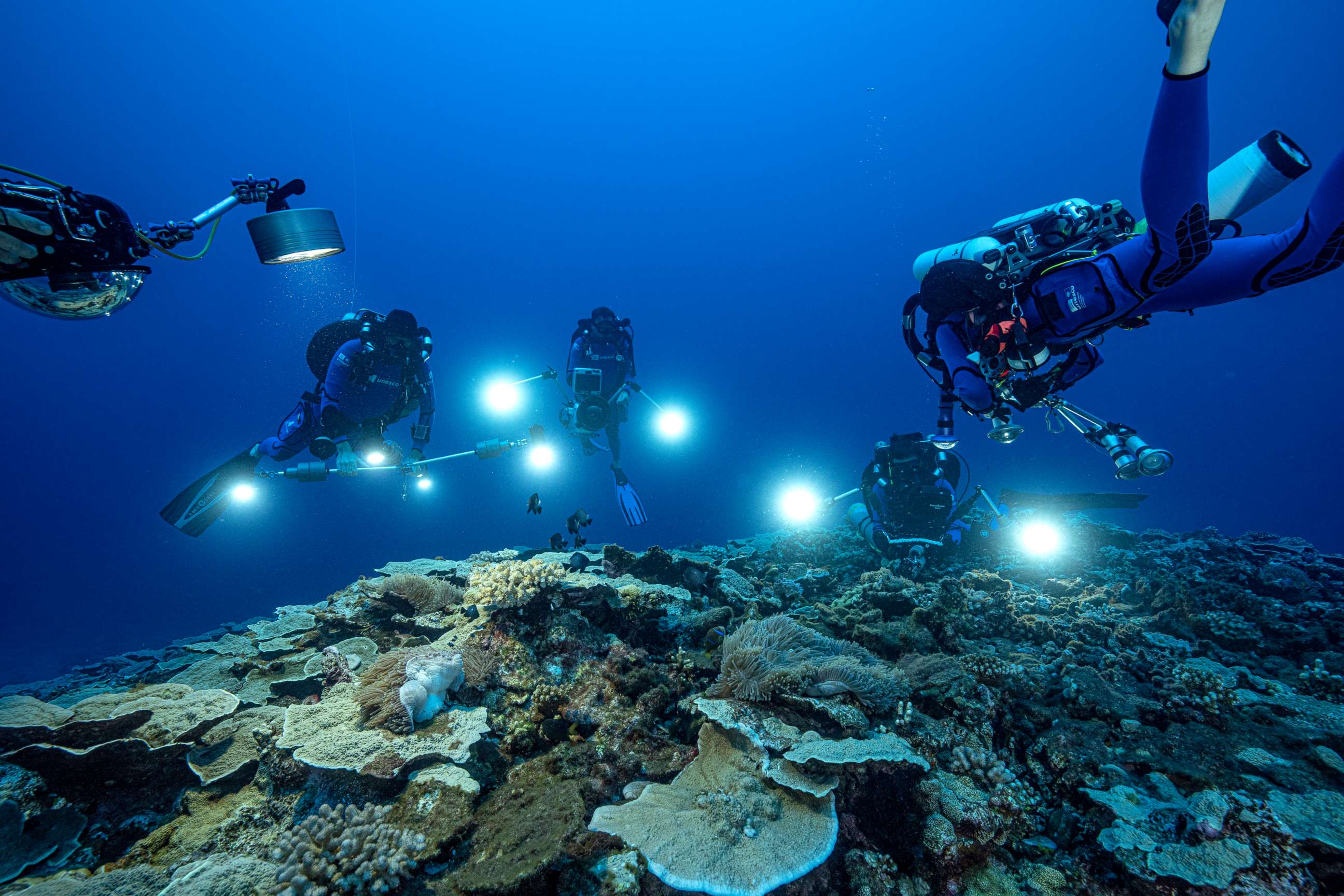
Few scientists have been able to locate, investigate and study coral reefs at depths of more than 100 feet because of the challenges posed to divers and the length of time they can stay under, according to UNESCO.
The reef was found between 115 feet to 230 feet deep after the team was equipped with special tanks. They logged 200 hours of diving to study the reef, which included taking photographs, measurements and samples of the coral, AP reported. The rose-shaped corals measure more than 6 feet in diameter, according to UNESCO.
"It was magical to witness giant, beautiful rose corals which stretch for as far as the eye can see. It was like a work of art," Alexis Rosenfeld, French photographer and founder of the 1 Ocean campaign, which led the diving expedition, said in a statement.
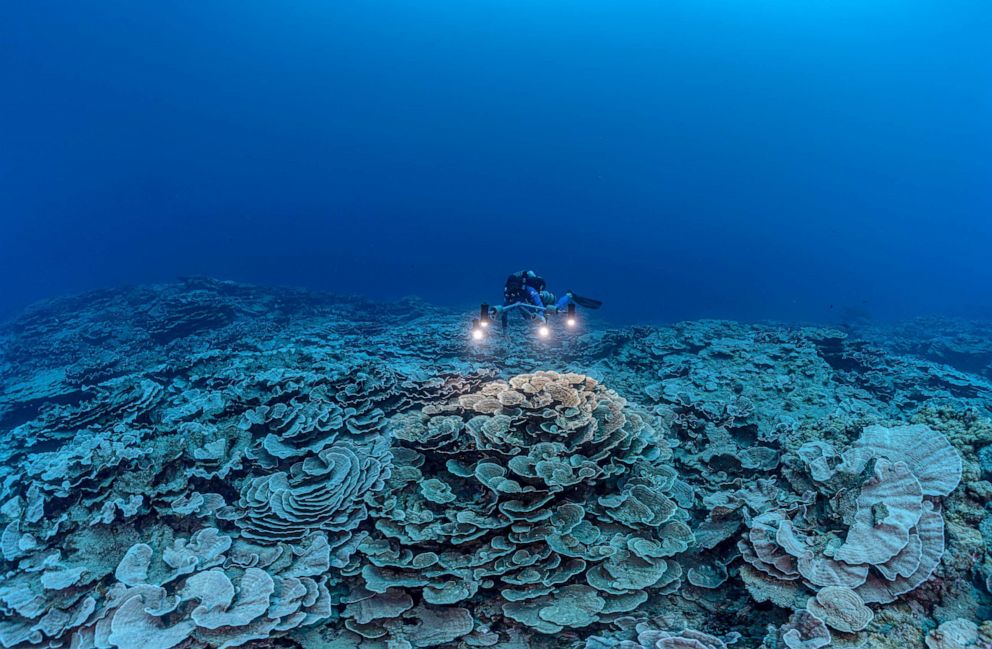
Coral reefs around the world are currently under duress, Carlton said. While they are being impacted in many ways, climate change is "the most prevalent" stressor, she said.
Up to 14% of the coral reefs in the world were killed between 2009 and 2018, according to a 2020 report by the Global Coral Reef Monitoring Project.
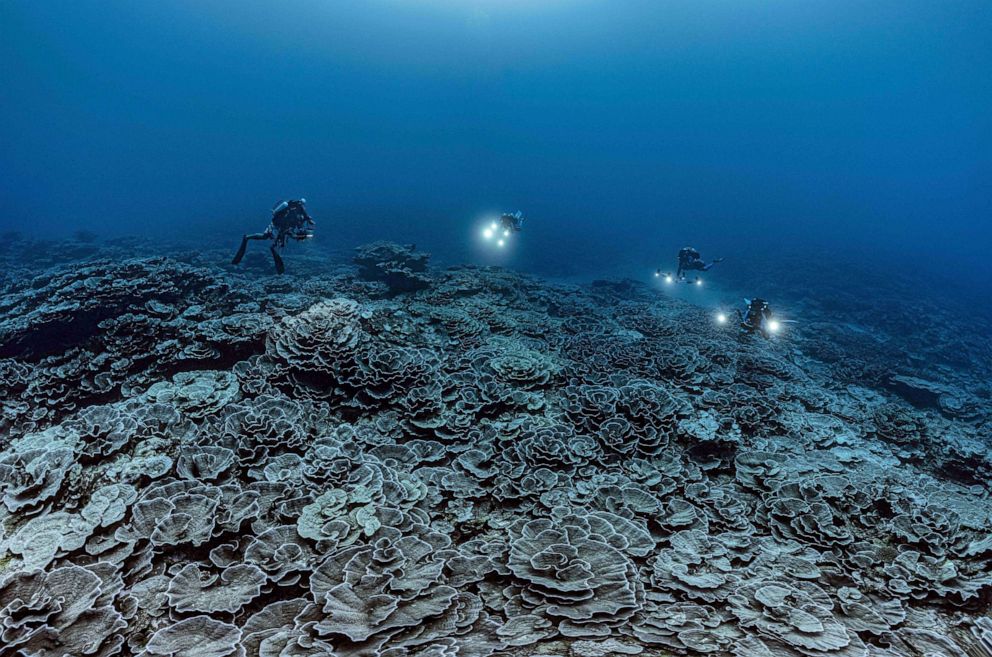
Coastal fishing, coastal runoff and the outbreak of disease are also causing widespread damage to the health of coral reef systems, Carlton said.
"This type of discovery is really exciting because it might help shed light and might be able to help these corals recover after we have reduced some of these other stressors as well," she said.